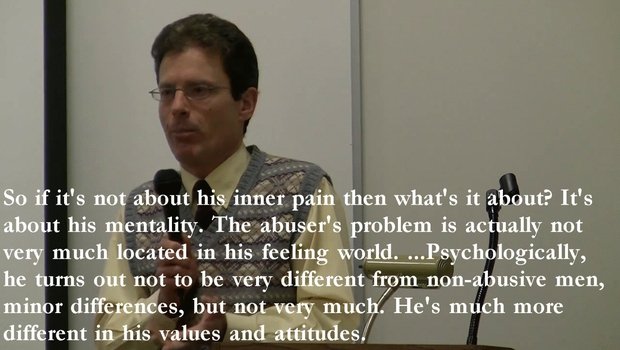
An article in a local paper, The Richmond and Twickenham Times, written by Grainne Cuffe, highlights a case of domestic abuse where a geologist at a Croydon company had been convicted after assaulting his ex-partner. ‘He had originally denied the assault but when presented with video evidence changed his plea to guilty.’
Denial, by the perpetrator, in the case of domestic abuse, is not uncommon. This happens for many reasons, not the least of these is that it is quite unlikely that an abuser will admit to their actions and accept responsibility. It’s preferable to convince family and friends that it is your partner who is crazy, unstable, exaggerating the situation or provoked a ‘heated response’. Unless there is video evidence to the contrary, he may assume the event will become a ‘he said, she said’ situation, leaving lots of room for interpretation by bystanders.
In addition, abusers don’t think their behaviour is actually abusive. Lundy Bancroft, a specialist in domestic abuse, has identified 10 traits that characterize the abusive mentality from his decades of working with abusive men. (Of course, women can be abusive also but Bancroft’s work has been with abusive men.) These traits are outlined in his book Why Does He Do That? Inside the Minds of Angry and Controlling Men (2002) and are listed below:
- He is controlling. The abuser believes in his right to control his partner’s actions and expects his word to be the last word. He does not accept disagreement and considers it his right to punish acts that a partner might take to regain ownership of her life.
- He feels entitled. The abuser believes that he has special status and that it provides him with exclusive rights and privileges that do not apply to his partner. In addition, he feels personally wronged if he doesn’t get what he wants all the time.
- He twists things into the opposites. If the abuser’s partner resists he will view it as control, if she cries, he will view it as manipulation. If she is happy, it will see it as covert anger.
- He disrespects his partner and considers himself superior to her. An abuser tends to see his partner as less intelligent, less competent, less logical and even less sensitive than he is. He will objectify and depersonalize his partner which allows the abuse to get worse and worse over time.
- He confuses love and abuse. An abusive man often tries to convince his partner that his mistreatment of her is proof of how deeply he cares. Media often capitalize on this idea for example describing a murder as a ‘crime of passion’.
- He is manipulative. Few abusive men rely entirely on verbal abuse or intimidation to control their partners. He will frequently switch to manipulation of his partner to get what he wants. He may also use tactics to get her upset or confused.
- He strives to have a good public image. Most abusive men have a sharp split between their public image and private treatment of their partner. Outside of the home the abusive man can be charming, generous, compromising, supportive, vocal supporter of equality and mutual respect. At home they can be angry, domineering, assaultive, selfish, disrespectful and misogynistic.
- He feels justified. Abusers externalize the responsibility for their actions believing that his partner makes them behave in abusive ways and will defend or feel entitled to their actions. He makes excuses and commonly blames his partner for anything that goes wrong not just his abusive behaviour.
- Abusers deny and minimize their abuse. Abusive men will rarely acknowledge their abusive behaviour or will minimize the abusive event and its repercussions on his partner, causing her to start to doubt herself and feel crazy.
- Abusers are possessive. He has the assumption that his partner belongs to him. He has a sense of ownership over her and because he feels he ‘owns’ his partner he feels he can treat her as he see fit. Out of this possessiveness he will start to isolate his partner – so that her life is focused entirely on serving his needs, and he does not want her to develop sources of strength that would contribute to her independence. Therefore any friendships victims make, become threats to the abuser.
An abuser will attempt to get everyone – friends, family, therapists, focused on how he feels (sad, stressed, suicidal etc) to foster a sympathetic reaction and to distract you from what he is actually doing to his partner.
This is where friends, family and the church community need to take a stand for the victim. Remaining neutral and maintaining the status quo is no longer an option.
__________________________________
So what can you do? Well start by educating yourself. Find out more here about what abuse is and what it looks like.
For more information on what a healthy relationship looks like click here.
If you would like to know more about our survivors’ community, or you would like to be part of this online community please email us here.
As always, you can give regularly to Restored to enable us to continue to work with survivors, train churches, and produce free resources.
